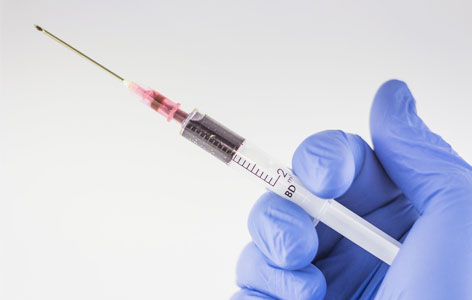
By: Candice Tang, ORT Times Writer
Today, it’s hard to conduct cancer research without coming across the term liquid biopsy, which refers to the detection of cancer cells or cancer DNA through a blood sample.
Liquid biopsies exploit the fact that cancerous cells shed fragments of their DNA into circulating blood, which can then be picked up in a blood sample. These cell-free fragments of DNA might carry the genetic mutations associated with cancer, which can be determined by genetic tests. Because liquid biopsies are non-invasive and relatively cost-effective, they are expected to join the ranks of other cancer diagnostic tests.
However, even the best diagnostic tests have flaws.
“Traditional liquid biopsies are heavily based on looking for mutations, and one limitation with this is that it is rare for mutations to be specific to a particular tumour type,” explains Dr. Ankur Chakravarthy, a member of Dr. Daniel De Carvalho’s research group at Princess Margaret Cancer Centre. “Another limitation is that some tumours only have a few mutations, which may not be present on panels designed to look for them.”
In addition, current techniques cannot robustly distinguish between cell-free DNA from healthy cells and circulating tumour DNA.
Recognizing these challenges, Dr. De Carvalho collaborated with Dr. Rayjean Hung at the Lunenfeld-Tanenbaum Research Institute of Mount Sinai Hospital to develop an advanced liquid biopsy technique. Dr. Hung specializes in the molecular and genomic epidemiology of cancer.
The new technique exploits the fact that cancer leads to epigenetic changes—commonly changes to DNA methylation.
“[Methylation changes] tend to be highly specific to the tumour type and are far more common than mutations are,” explains Dr. Chakravarthy. “Furthermore, they tend to be preserved across different patients with a given tumour type.”
By examining differentially methylated regions, the researchers can curate a library of unique cancer methylation patterns to help detect and classify cancer. The technique is appropriately called cell-free methylated DNA immunoprecipitation and high-throughput sequencing, or cfMeDIP–seq.
In an article published in Nature, the research team compared cfMeDIP–seq with other standard DNA isolation and sequencing techniques—and found that it was more sensitive and cost-effective. cfMeDIP–seq could also adequately detect circulating tumour DNA among normal cell-free DNA in the blood of an early stage pancreatic cancer patient.
“Our work was focused on cancer detection,” said Dr. Hung. “But in theory, with dedicated studies and proper clinical validation, the technique can also be used to assess prognosis, detect minimum residual disease, evaluate the risk of relapse and monitor disease burden. The suitability of cfMeDIP-seq for these additional applications will need to be further investigated.”




